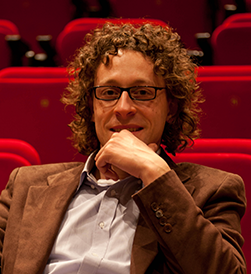Like a lot of healthcare entrepreneurs, Dr. Marcel Muenster initiated the development of a matchmaking service for doctors and travelers, Travedoc, when he got sick. After a six-day bout with food poisoning on a 10-day vacation in Hong Kong, Meunster said he appreciated the need to have a service that makes it easier for people to find qualified physicians and dentists who also speak their language.
The 2-year-old healthcare startup has built a presence in six countries, mostly in the Middle East and Southeast Asia. Muenster, the CEO, is on a high after winning the HOT5 competition at the Digital Health Forum in London last month — a prize that went to Alivecor last year.
Meunster in an interview with media explained how Travedoc works. Users access the service for free. The search engine asks users for the country, the type of doctor they need and the language required. They enter their personal information and book their appointment, including house calls, online and it makes a note in the doctor’s calendar. Users receive a text message or email confirmation, which includes directions to the physician’s office. An app for Android and iOS networks will be rolled out later this year.
Muenster’s background makes him well suited for a company combining public health, travel and entrepreneurship. After graduating from University of Münster, he got a degree from Johns Hopkins School of Public Health and has worked as a project leader at the World Health Organization.
Since its launch, Muenster said Travedoc has received funding from angel investors, although he declined to disclose the amount. It has presented the company in five countries in four weeks (including England).
Its service mostly consists of elective care such as colds, food poisoning, tooth pain — they’re not life threatening situations but they’re conditions that can be a nuisance and require treatment before they do get worse. Dermatologists and cardiologists are also available.
Travedoc screens doctors and their facilities through a combination of online research and in-person vetting through a group of physicians referred to as country launchers. Although there’s a certain amount it can accomplish from its Cambridge, Massachusetts offices, these staff members visit the country in person, meet with the physicians and see the facilities they use. It also relies on the local health authority.
So far, it has a presence in six countries including Singapore, Malaysia and Abu Dhabi, where it recently closed a deal with a private hospital team. It also works with doctors in Dubai, France and Ghana. The West African country was its first country because Muenster has a former colleague from Johns Hopkins who is based there.
Insurers would be a good fit for the company and it’s engaged in preliminary talks with some travel insurance companies. About 80 percent of its current customers pay out-of-pocket. Muenster declined to specify the cost. He said that’s between the doctors and their patients. He invokes the Starbucks model when he talks about the quality of service it seeks to provide — that care is pretty much the same whether its customers are in Dubai or Malaysia.
A rating system is in the works that will give users access to other patients’ experience with doctors in Travedoc’s network. By February 2015, Muenster said it wants to have covered 30 percent of the world.





